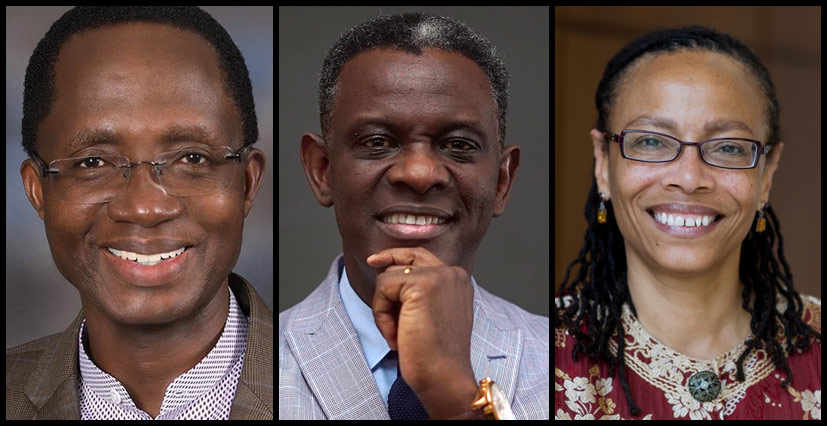 The National Academy of Medicine, formerly known as the Institute for Medicine, was founded in 1970. Election to the National Academy of Medicine is considered one of the highest honors in the fields of health and medicine and recognizes individuals who have demonstrated outstanding professional achievement and commitment to service. With the 70 new members from the United States, there are now 2,127 active fellows of the National Academy of Medicine.
The National Academy of Medicine, formerly known as the Institute for Medicine, was founded in 1970. Election to the National Academy of Medicine is considered one of the highest honors in the fields of health and medicine and recognizes individuals who have demonstrated outstanding professional achievement and commitment to service. With the 70 new members from the United States, there are now 2,127 active fellows of the National Academy of Medicine.
A JBHE analysis of the list of the 70 members of the latest cohort elected into the National Academy of Medicine finds that seven, or 10 percent, are Black. All seven have current affiliations with academic institutions in the United States.
Here are brief biographies of the seven Black scholars who in the latest cohort of new members of the National Academy of Medicine.

Felicia Hill-Briggs is a professor of medicine and physical medicine and rehabilitation at the Johns Hopkins University School of Medicine and a professor of health, behavior, and society at the university’s School of Public Health. Dr. Hill-Briggs is a graduate of American University in Washington, D.C., where she majored in psychology. She holds a Ph.D. in clinical psychology from Pennsylvania State University.
Chanita A. Hughes Halbert is a professor and associate dean of psychiatry and behavioral science in the College of Medicine at the Medical University of South Carolina in Charleston. She has been on the faculty there since 2012. Dr. Halbert holds a Ph.D. in psychology from Howard University in Washington, D.C.
Yasmin L. Hurd is the Ward Coleman Professor of Translational Neuroscience and professor of psychiatry and neuroscience in Icahn School of Medicine at Mount Sinai Hospital in New York City. A native of Jamaica, Dr. Hurd received her medical training at the Karolinska Institute in Sweden.
Tirin Moore is a professor of neurobiology at the Stanford School of Medicine in California. He joined the faculty at Stanford in 2003. Dr. Moore is a summa cum laude graduate of California State University, Chico. He holds a Ph.D. in neuroscience from Princeton University.

M. Kariuki Njenga is a professor of epidemiology and virology in the Paul G. Allen School for Global Animal Health at Washington State University in Pullman. Dr. Njenga holds bachelor’s and master’s degrees from the University of Nairobi in Kenya. He earned a Ph.D. at Pennsylvania State University.
Olugbenga Ogedegbe is the director of the division of health and behavior in the department of population health and associate vice chancellor for global network academic planning at New York University. Dr. Ogedegbe earned his medical degree at Donetsk University in the Ukraine. He holds a master of public health degree from Columbia University.
Dorothy E. Roberts is the George A. Weiss University Professor of Law and Sociology and the Raymond Pace and Sadie Tanner Mossell Alexander Professor of Civil Rights at the University of Pennsylvania. Dr. Roberts is a graduate of Yale University and Harvard Law School.










